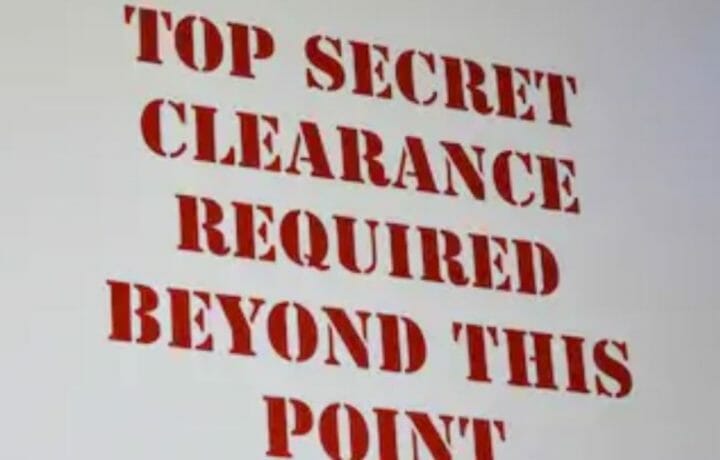One of several questions swirling around Washington, D.C. this week isn’t new – is the government classifying too much information, and are the costs of doing so increasingly outrageous?
In a report released by the Information Security Oversight Office last week, it was revealed that approximately $11.36 billion was spent securing classified information in government last year. That’s a 12 percent increase over the year prior.
The cost increases might as well be dubbed the “Wikileaks affect” – surging spending in both physical security and for the protection of classified information systems accounts for at least part of the spike. Despite government’s efforts to clamp down on classified information and prevent leaks, the timing of the report is a bit ironic, with recent leaks causing congressional outcry and prompting a change in polygraph policy for intelligence agencies.
The $11.36 billion figure is, in fact, only a portion of the money spent to keep the nation’s secrets under wraps. For security reasons, the figures for the CIA, NSA, and other intelligence agencies is itself classified.
“To me it illustrates the most important problem — namely that we are classifying far too much information,” said Steven Aftergood, director of the Project on Government Secrecy for the Federation of American Scientists. “The credibility of the classification system is collapsing under the weight of bogus secrets.” Included in the $11.36 billion figure are the costs of security clearance applications, reinvestigations, training for security personnel, and the salaries of those responsible for reviewing documents for classification and declassification.
Even as the volume of classified information and the cost to protect it rises, many are acknowledging that the post-9/11 security apparatus may not be sustainable in today’s budget climate. At a recent security clearance reform hearing on Capitol Hill, one government official argued that cutting the number of classified positions, as well as downgrading clearance levels where appropriate, would be critical to curbing costs.
“There’s a huge difference in the amount of money that’s used to implement a top secret versus a secret clearance,” said Gene Dodoro, comptroller general at the U.S. Government Accountability Office.
Lindy Kyzer is the editor of ClearanceJobs.com. She loves cybersecurity, social media, and the U.S. military. Have a conference, tip, or story idea to share? Email editor@clearancejobs.com.


